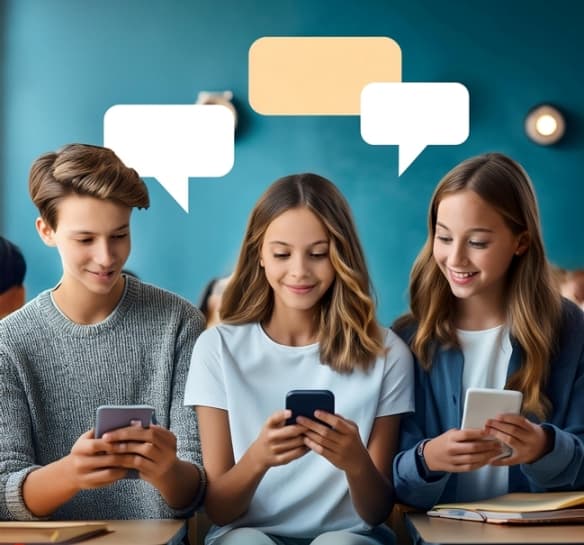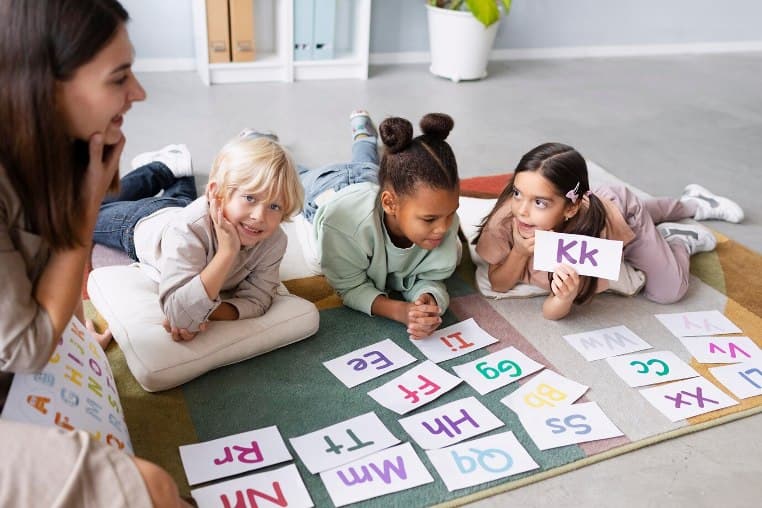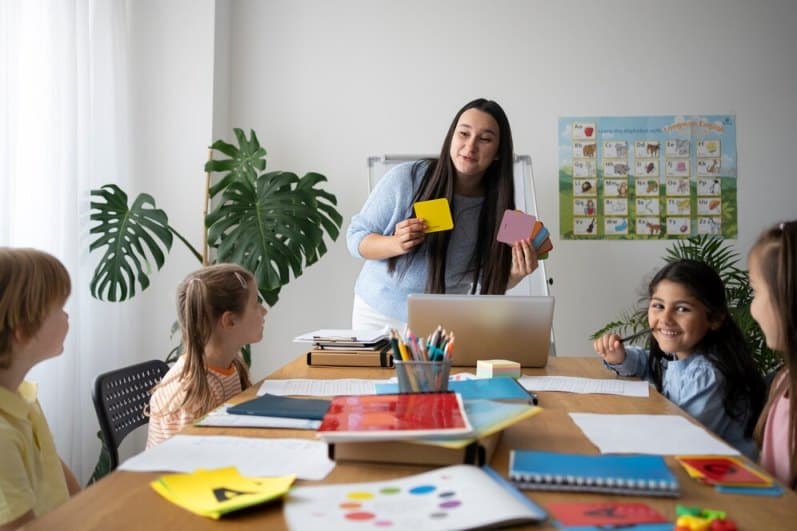Social media has become an integral part of students’ lives. While it offers opportunities for communication and learning, its negative impacts on education are significant. Constant notifications and the allure of social media platforms lead to reduced attention spans. Students often find themselves procrastinating, which hampers their academic performance.
Additionally, social media can expose students to misinformation, creating confusion and misunderstanding about academic subjects. Cyberbullying is another serious concern, affecting students’ mental health and well-being.
Balancing the use of social media with educational responsibilities is crucial for maintaining academic success and personal growth.
What Negative Effect Does Social Media have On Education?
While social media offers students and educators numerous benefits, it also harbors a range of negative effects that can significantly impact educational outcomes.
Distraction and Decreased Focus
One of the most significant negative effects of social media on education is the constant distraction it poses. Students today are perpetually connected to platforms such as Facebook, Instagram, and Twitter.
These platforms are designed to capture attention, with endless streams of content that keep users engaged for extended periods. Unfortunately, this constant engagement comes at the cost of focus on academic work.
Studies have shown that students who frequently use social media during study sessions tend to have lower academic performance. The reason is simple: the brain’s ability to concentrate on a single task is disrupted when students continuously switch between studying and checking their social media feeds.
This phenomenon, known as “multitasking,” often leads to superficial learning and poor retention of information.
Impact on Critical Thinking and Writing Skills
Social media often promotes quick, informal communication, which can negatively affect students’ critical thinking and writing skills.
- Surface-Level Communication: Platforms like Twitter and Instagram encourage brief, surface-level communication, which can limit students’ ability to engage in deep, reflective thought. The fast-paced nature of social media interactions often discourages critical analysis and thoughtful discussion, essential components of higher learning.
- Loss of Writing Ability: The informal language and abbreviations commonly used on social media can erode students’ formal writing abilities. Over time, students may struggle with proper grammar, spelling, and sentence structure in academic writing, leading to lower quality work and grades.
Reduction in Critical Thinking Skills
Social media platforms often encourage the consumption of bite-sized, easily digestible content. While this type of content is convenient, it does not promote the development of critical thinking skills.
Educational success relies on the ability to analyze, evaluate, and synthesize information — a process that is undermined when students rely heavily on social media for information.
The tendency to skim through content without deep engagement reduces students’ ability to critically assess the validity and reliability of the information they encounter.
Moreover, the echo chamber effect, where users are exposed primarily to information that aligns with their preexisting beliefs, can further hinder the development of well-rounded critical thinking abilities.
Cyberbullying and Mental Health Issues
Social media can also contribute to negative mental health outcomes, which can further impact educational experiences.
- Cyberbullying: The anonymity provided by social media platforms can lead to an increase in cyberbullying, where students may be harassed, intimidated, or humiliated online. Victims of cyberbullying often experience anxiety, depression, and a decrease in self-esteem, which can significantly hinder their academic performance.
- Mental Health Concerns: Excessive social media use has been linked to feelings of isolation, loneliness, and depression. The constant comparison with others, exposure to unrealistic standards, and the pressure to maintain a certain online persona can lead to emotional distress. Mental health issues, in turn, can decrease motivation, focus, and interest in academic pursuits.
See Also: Why Middle Schoolers Should Have Recess
Erosion of Academic Integrity
Another negative effect of social media on education is the erosion of academic integrity. Social media provides students with easy access to vast amounts of information, which can be a double-edged sword. On one hand, it facilitates research and learning, but on the other, it makes it easier for students to engage in academic dishonesty.
Plagiarism, for instance, has become a growing concern in educational institutions. Students may be tempted to copy and paste information from online sources without proper citation, leading to a decline in original thought and critical analysis.
Additionally, social media platforms enable the sharing of answers and completed assignments, further compromising the integrity of academic work.
Reduced Face-to-Face Interactions
Another negative impact of social media on education is the reduction of face-to-face interactions. Social media platforms encourage virtual communication, which can diminish the development of interpersonal skills that are critical in educational and professional settings.
- Social Skills: Students who spend excessive time on social media may miss out on opportunities to develop strong social skills, such as effective communication, empathy, and teamwork. These skills are crucial for group projects, classroom discussions, and future workplace environments.
- Isolation from Academic Communities: Overreliance on social media can lead to a sense of isolation from academic communities. Instead of engaging with peers and instructors in person, students may prefer online interactions, which can result in missed opportunities for collaboration, mentorship, and academic growth.
Teacher-student Relationship
Social media creates a gap between teachers and students. Students may message teachers instead of speaking in person. This weakens the bond between them.
Teachers may find it hard to understand their students’ needs. Students might also feel less connected to their teachers. This can affect their learning and growth.
Misinformation Spread
Social media can spread false information quickly. Students may believe fake news. This can hurt their understanding of topics. Trustworthy sources are important for learning. Misinformation can confuse students. It can lead to wrong answers in exams. Students must learn to check facts.
Students might cheat using social media. They can share answers during tests. This is unfair to honest students. Cheating hurts learning. Schools must teach integrity. Using social media for cheating can get students in trouble. Honesty is important in education.
Sleep Deprivation and Its Effect on Learning
Social media usage, particularly late at night, has been linked to sleep deprivation among students. The blue light emitted by screens can interfere with the body’s natural sleep cycle, leading to difficulty falling asleep and staying asleep.
As a result, students may suffer from sleep deprivation, which negatively impacts cognitive function, memory, and overall academic performance.
Lack of sleep can lead to reduced attention span, impaired problem-solving abilities, and decreased motivation — all of which are detrimental to learning.
Chronic sleep deprivation can also exacerbate stress and anxiety, further hindering students’ ability to succeed academically.
Solutions And Recommendations
Educators can limit social media use during study hours to enhance focus. Encouraging digital detox and promoting offline activities reduces distractions.
Parents should set screen time limits for their children. This helps in reducing excessive use of social media. Encourage kids to engage in physical activities. This keeps them away from screens.
Regularly monitor their online activities to ensure safety. Teach children about the risks of social media. Discuss cyberbullying and privacy issues with them. Create a technology-free zone at home. This promotes healthy habits.
Schools should enforce strict social media usage policies. This reduces distractions during class. Educators should integrate digital literacy into the curriculum. This teaches students to use technology wisely.
Provide workshops and seminars for parents and students. These sessions can cover the negative impacts of social media. Encourage collaborative learning and physical activities. This helps students to focus on studies. Create a support system for students facing cyberbullying. This ensures a safe learning environment.
Conclusion
Social media can harm educational outcomes if misused. It distracts students and impacts their focus. Limiting screen time and fostering healthy online habits can help.
Teachers and parents should guide students in balancing social media use. A mindful approach ensures social media enhances rather than hinders education.



